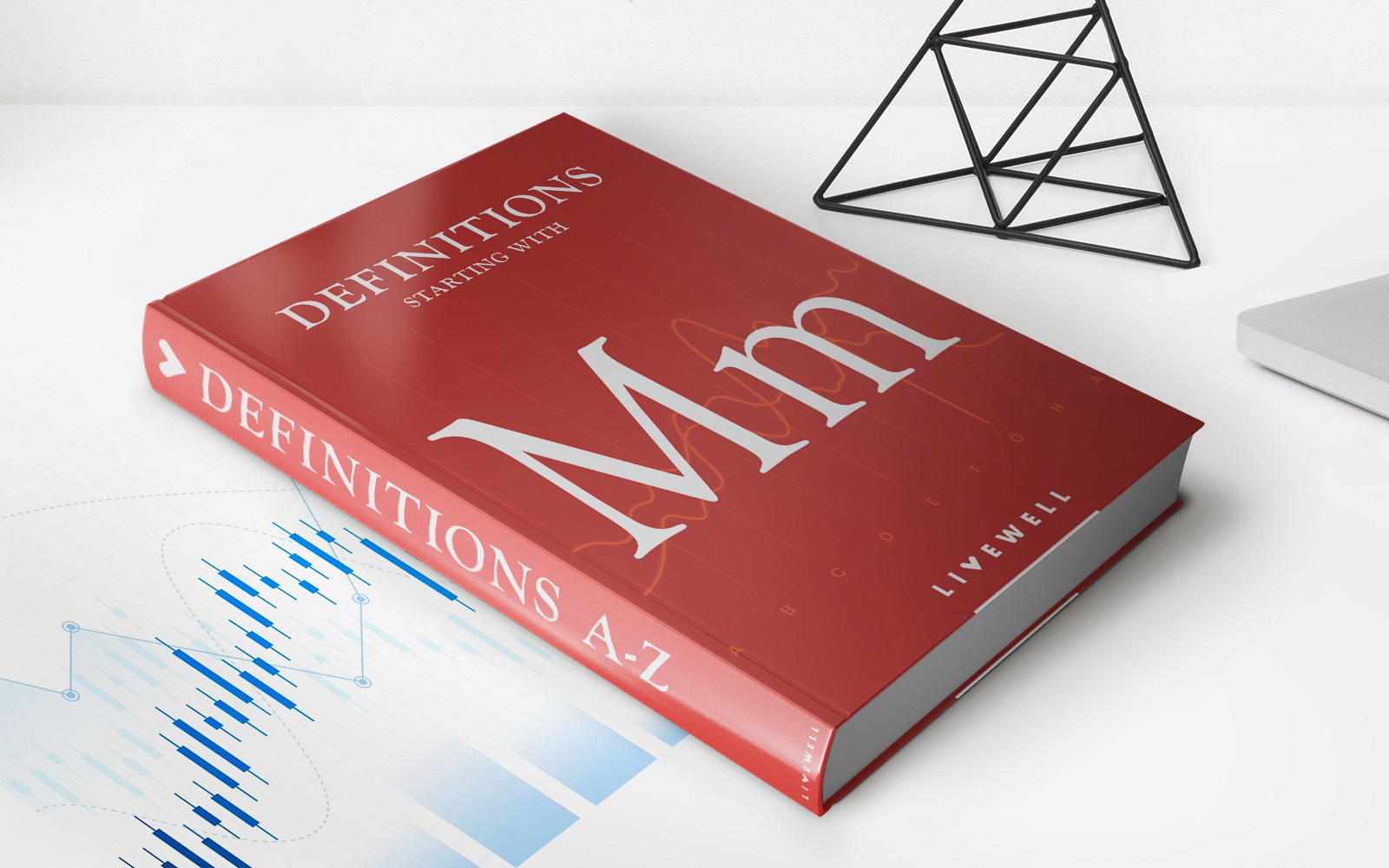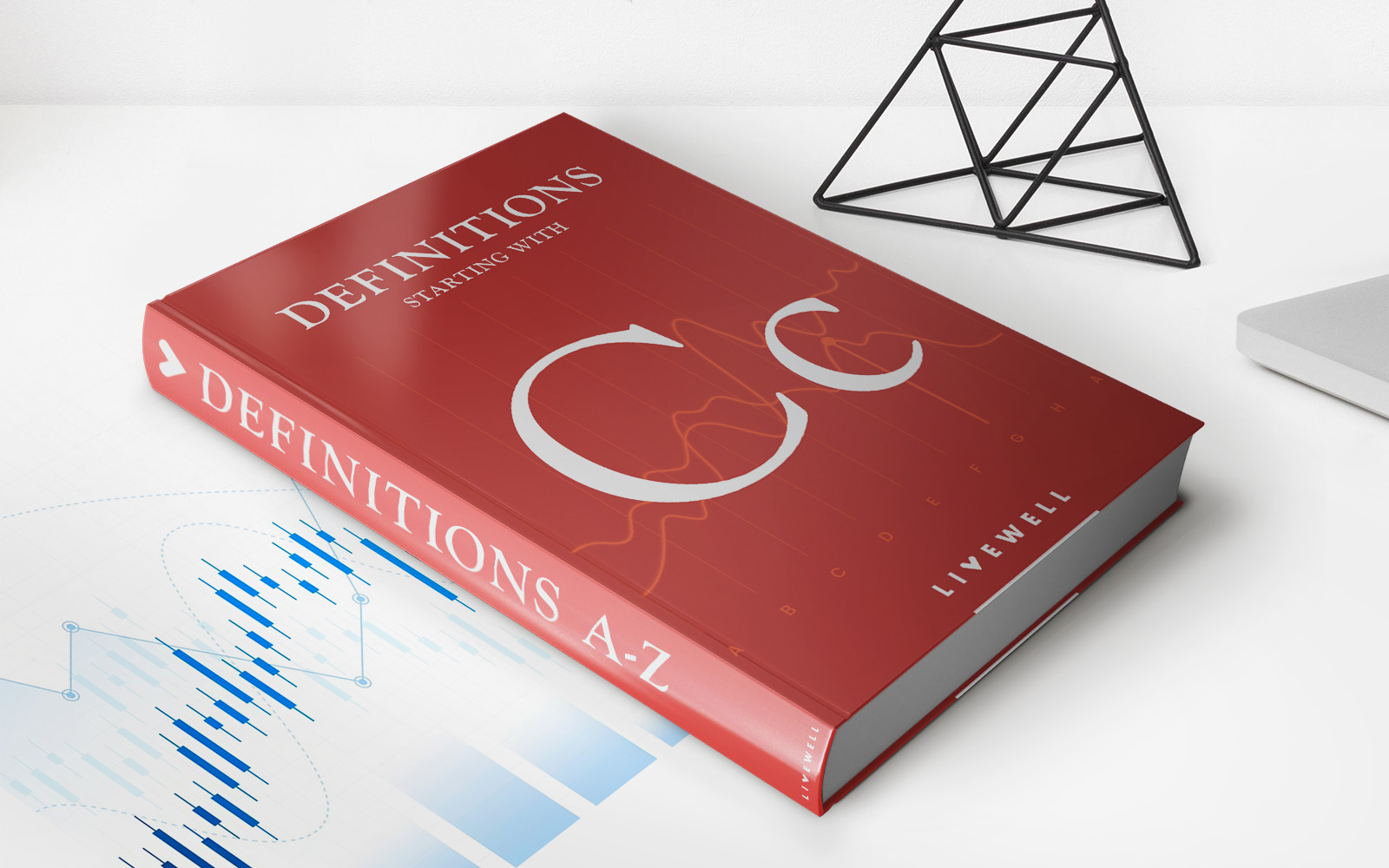Home>Finance>How Does Student Loan Forgiveness Affect Your Credit Score


Finance
How Does Student Loan Forgiveness Affect Your Credit Score
Modified: December 29, 2023
Learn how student loan forgiveness can impact your credit score in this comprehensive guide. Understand the financial implications of this program and manage your finances wisely
(Many of the links in this article redirect to a specific reviewed product. Your purchase of these products through affiliate links helps to generate commission for LiveWell, at no extra cost. Learn more)
Table of Contents
- Introduction
- Understanding Student Loan Forgiveness
- How Student Loan Forgiveness Works
- Effects of Student Loan Forgiveness on Credit Score
- Factors That Determine Credit Score Impact
- Positive Effects of Student Loan Forgiveness on Credit Score
- Potential Negative Effects of Student Loan Forgiveness on Credit Score
- Tips for Managing Credit During Student Loan Forgiveness
- Conclusion
Introduction
Student loans have become a significant burden for many borrowers, often leading to financial strain and long-term debt. However, there is a glimmer of hope for those weighed down by these loans – student loan forgiveness. In recent years, there has been an increasing focus on providing relief to borrowers through various student loan forgiveness programs.
But how does student loan forgiveness actually work? And how does it affect your credit score? These are important questions to consider before diving into any forgiveness program. In this article, we will explore the ins and outs of student loan forgiveness and its impact on your credit score. By understanding the intricacies of this process, you can make informed decisions and navigate your financial future with confidence.
Student loan forgiveness refers to the cancellation or discharge of a borrower’s obligation to repay their student loans. It is typically offered to individuals who meet certain eligibility criteria, such as working in a specific field or participating in public service. Forgiveness can come in various forms, including loan discharges, income-driven repayment plans, and Public Service Loan Forgiveness (PSLF) programs.
When it comes to your credit score, student loan forgiveness can have both positive and negative effects, depending on several factors. Understanding these effects and the factors that contribute to them is crucial in managing your credit during the forgiveness process. By proactively managing your credit and implementing smart financial strategies, you can mitigate any potential negative impacts and reap the benefits of student loan forgiveness.
In the following sections, we will delve deeper into how student loan forgiveness works, the effects it can have on your credit score, and provide valuable tips for managing your credit along the way. Let’s embark on this journey to discover how student loan forgiveness can shape your financial future.
Understanding Student Loan Forgiveness
Student loan forgiveness is a program that allows borrowers to have their student loan debt canceled or discharged, relieving them from the obligation to repay the remaining balance. This can provide significant financial relief to individuals who are struggling to manage their student loan payments.
There are various types of student loan forgiveness programs available, each with its own eligibility requirements and criteria. Some of the most common programs include:
- Public Service Loan Forgiveness (PSLF): This program is available to borrowers who work full-time for a qualifying employer, such as government organizations or non-profit agencies, and make 120 on-time monthly payments. After meeting the requirements, the remaining loan balance is forgiven.
- Teacher Loan Forgiveness: This program is designed specifically for teachers who work in low-income schools or educational service agencies. Eligible teachers can have a portion of their federal loans forgiven after completing five consecutive years of teaching.
- Income-Driven Repayment (IDR) Forgiveness: Borrowers who enroll in an income-driven repayment plan, such as Income-Based Repayment (IBR), Pay As You Earn (PAYE), or Revised Pay As You Earn (REPAYE), may qualify for forgiveness after making consistent payments for a set number of years, typically 20 to 25 years.
- Closed School Loan Discharge: If a borrower’s school closes while they are enrolled or within 120 days of their withdrawal, they may be eligible for a discharge of their federal student loans.
- Disability Discharge: Borrowers who have a total and permanent disability may qualify for a discharge of their federal student loans.
It is important to research and understand the specific requirements and conditions of each forgiveness program to determine if you are eligible. Additionally, it is crucial to stay informed about any changes or updates in the programs, as legislation can impact the availability and terms of forgiveness options.
While student loan forgiveness can provide a lifeline for borrowers struggling with their debt, it is essential to note that not all borrowers will qualify. It is important to assess your eligibility and explore alternative options, such as income-driven repayment plans or loan refinancing, if forgiveness is not an option for you.
How Student Loan Forgiveness Works
Student loan forgiveness programs operate under specific guidelines and criteria. Understanding how these programs work is crucial in navigating the forgiveness process and maximizing the benefits it offers.
Here is a general overview of how student loan forgiveness works:
- Eligibility: Each forgiveness program has its own eligibility requirements. These can include factors such as employment in specific fields, length of service, and repayment plan participation. It is important to review the eligibility criteria for the program you are interested in to determine if you qualify.
- Application Process: Once you determine your eligibility, you will need to submit an application for forgiveness. This typically involves gathering and submitting supporting documentation, such as employment verification forms, loan repayment history, and proof of service.
- Loan Review: After submitting your application, your student loan servicer will review your information to ensure you meet all the requirements for forgiveness. They will assess factors such as payment history, employment status, and adherence to the program’s guidelines.
- Forgiveness Determination: If your application is approved, your loan servicer will determine the amount of forgiveness you are eligible to receive. This can vary depending on the program and the specific terms outlined. Some programs offer full loan discharge, while others may provide partial forgiveness.
- Disbursement: Once your forgiveness determination is made, the loan servicer will process the forgiveness and, if applicable, adjust your remaining loan balance accordingly. You will receive confirmation of the forgiveness and any updates to your loan status.
It’s important to note that the forgiveness process can take time, and it is essential to stay on top of your loan obligations during this period. Continue making payments until you receive confirmation of forgiveness to avoid any negative impact on your credit score.
Additionally, it is crucial to maintain accurate records and documentation throughout the forgiveness process. Keep copies of all application materials, communication with your loan servicer, and any other relevant paperwork. This will help ensure a smooth and successful forgiveness journey.
Remember, student loan forgiveness programs have specific requirements and guidelines. It is essential to stay informed and understand the details of the program you are participating in to make the most of the opportunities available to you.
Effects of Student Loan Forgiveness on Credit Score
Student loan forgiveness can have both positive and negative effects on your credit score, depending on several factors. Here are the key ways in which student loan forgiveness can impact your credit:
- Positive Effects: When your student loans are forgiven, it can lower your overall debt burden. This reduction in debt can have a positive impact on your credit score, as it lowers your credit utilization ratio, which is the amount of credit you are using compared to your total available credit. A lower utilization ratio generally results in a higher credit score. Furthermore, if you successfully complete a forgiveness program, it demonstrates responsible financial behavior, which can enhance your creditworthiness.
- Negative Effects: While student loan forgiveness can have positive effects, it’s important to be aware of potential negative impacts on your credit score. During the forgiveness process, your loans may be placed into forbearance or deferment, which means you are not required to make payments. However, if your loans appear as delinquent or in deferment on your credit report, it could temporarily lower your credit score. Additionally, if you had a long history of regular on-time payments before entering the forgiveness program, the absence of new positive payment history may also have a slight negative impact on your credit score.
It’s important to note that the impact on your credit score may vary depending on your unique financial situation and credit history. It’s essential to monitor your credit report regularly to ensure accuracy and address any potential issues that may arise during the forgiveness process.
It’s also worth mentioning that the negative impact of temporary credit score fluctuations due to the forgiveness process is generally outweighed by the long-term benefits of reducing or eliminating your student loan debt. Once you have successfully completed a forgiveness program, you can focus on rebuilding and maintaining a strong credit score moving forward.
Understanding the potential effects on your credit score is vital in managing the financial implications of student loan forgiveness. By staying informed and proactively managing your credit, you can navigate the forgiveness process while minimizing any potential negative impacts.
Factors That Determine Credit Score Impact
Several factors play a role in determining how student loan forgiveness will impact your credit score. Understanding these factors can help you anticipate and manage the potential effects on your credit. Here are the key factors to consider:
- Payment History: Your payment history is one of the most critical factors that influence your credit score. If you have consistently made on-time payments before entering a forgiveness program, it can positively affect your credit score. However, if you have a history of late or missed payments, it may have a negative impact.
- Credit Utilization Ratio: Student loan forgiveness can lower your overall debt burden, which can positively affect your credit utilization ratio. A lower utilization ratio, which is the amount of credit you are using compared to your total available credit, generally leads to a higher credit score. However, if you close your accounts upon loan forgiveness, it may impact your total available credit and potentially increase your utilization ratio.
- Length of Credit History: The length of your credit history also plays a role in determining your credit score. If you entered a forgiveness program and suspended making new loan payments, it may impact the length of your credit history. However, the positive aspects of loan forgiveness, such as reducing your overall debt burden, can outweigh any potential negative impact from changes in credit history length.
- Default and Delinquency: If you have fallen into default or delinquency on your student loans before entering a forgiveness program, it may have already negatively impacted your credit score. The forgiveness process can provide an opportunity to rectify this situation and improve your credit score over time.
- Type of Forgiveness Program: Different forgiveness programs have varying effects on your credit score. For example, programs like Public Service Loan Forgiveness (PSLF) require on-time payments while working in qualifying employment. This can have a positive impact on your credit score. On the other hand, if your loans are discharged due to total and permanent disability, the impact on your credit score may be minimal.
It’s important to remember that while student loan forgiveness can have an impact on your credit score, it’s just one piece of the credit puzzle. Your overall credit behavior and financial management play significant roles in determining your creditworthiness. By consistently making on-time payments for other debts and managing your credit responsibly, you can maintain or improve your credit score throughout the forgiveness process.
Furthermore, it’s crucial to monitor your credit report regularly to ensure accuracy and address any potential discrepancies or errors. Monitoring your credit allows you to stay informed and take necessary steps to protect and maintain your creditworthiness.
By understanding these factors and actively managing your credit during the student loan forgiveness process, you can minimize any potential negative impact and maximize the benefits of reducing or eliminating your student loan debt.
Positive Effects of Student Loan Forgiveness on Credit Score
Student loan forgiveness can have several positive effects on your credit score, providing you with financial relief and opportunities for improvement. Here are the key positive effects of student loan forgiveness on your credit score:
- Reduced Debt Burden: Student loan forgiveness can significantly reduce or even eliminate your outstanding loan balance. This reduction in debt can improve your credit utilization ratio, which is the amount of credit you are using compared to your total available credit. A lower utilization ratio generally leads to a higher credit score.
- Improved Payment History: Forgiveness programs often require borrowers to make on-time payments during the qualifying period. Consistently making these payments demonstrates responsible financial behavior and can positively impact your credit history and score. Successfully completing a forgiveness program can help rebuild a positive payment history.
- Enhanced Creditworthiness: Successfully completing a student loan forgiveness program showcases your ability to meet financial obligations. This responsible behavior can enhance your creditworthiness in the eyes of lenders and credit agencies. It may lead to improved loan terms and interest rates on future credit applications, such as mortgages or auto loans.
- Financial Flexibility: By eliminating or reducing your student loan debt through forgiveness, you free up income that can be put towards other financial goals. This newfound financial flexibility can help you better manage your finances and stay on top of other obligations, leading to a healthier overall credit profile.
- Opportunity to Rebuild Credit: If you entered a loan forgiveness program with a history of late or missed payments, the forgiveness process allows you to start fresh and rebuild your credit. By making on-time payments and managing your remaining credit responsibly, you can gradually improve your credit score over time.
It’s important to note that the positive effects of student loan forgiveness may take time to fully manifest. Building a strong credit history requires consistent responsible credit management. While forgiveness is a significant step towards improving your credit score, it’s equally important to stay vigilant and continue managing your credit wisely.
Lastly, remember that the positive effects of student loan forgiveness on your credit score may vary depending on your overall credit history and financial situation. It’s crucial to monitor your credit report regularly, address any errors, and maintain responsible credit behavior to make the most of the benefits offered by student loan forgiveness.
Potential Negative Effects of Student Loan Forgiveness on Credit Score
While student loan forgiveness can bring many benefits, it’s important to be aware of potential negative effects on your credit score. Understanding these potential drawbacks can help you navigate the forgiveness process more effectively. Here are some potential negative effects of student loan forgiveness on your credit score:
- Temporary Credit Score Fluctuations: During the forgiveness process, your student loans may be placed in forbearance or deferment, indicating that you are not required to make payments. This can cause your credit report to show the loans as delinquent or in deferment, which may temporarily lower your credit score. It’s important to note that these temporary fluctuations are usually outweighed by the long-term benefits of reducing or eliminating your student loan debt.
- Changes in Credit Mix: Student loans are considered installment loans, which have a different impact on your credit score compared to revolving credit, such as credit cards. If your student loans are discharged, it may impact your credit mix, which can influence your credit score. However, the impact of this change is typically minor compared to other factors like payment history and credit utilization.
- Loss of Positive Payment History: If you had a long history of making on-time payments before entering a forgiveness program, the absence of new positive payment history may impact your credit score slightly. However, this effect is generally minimal, especially when compared to the benefits of reducing your overall debt burden through forgiveness.
- Impacts on Credit Mix: Applying for student loan forgiveness programs or participating in income-driven repayment plans may require consolidating or refinancing your loans. This action can have implications on your credit mix. While it may initially cause a small dip in your credit score, it’s important to consider the long-term benefits of reduced debt and improved financial stability.
- Longer Credit History: If you entered a forgiveness program and suspended making new loan payments, it may affect the length of your credit history. Credit scoring models factor in the age of your accounts when determining your credit score. While the reduction in average account age can impact your credit, the overall positive impact of student loan forgiveness often outweighs this temporary effect.
It’s important to remember that the potential negative effects on your credit score are generally temporary or minimal compared to the long-term benefits of student loan forgiveness. It’s essential to maintain responsible credit behavior, such as making on-time payments for other debts and managing your credit utilization ratio, to mitigate any potential negative impacts.
Monitoring your credit report regularly and addressing any errors or discrepancies is also crucial during the forgiveness process. By staying informed and proactive, you can ensure that your credit score accurately reflects your financial situation.
Overall, while there may be some minor drawbacks, the potential negative effects of student loan forgiveness on your credit score are typically outweighed by the benefits of reducing your overall debt burden and improving your long-term financial health.
Tips for Managing Credit During Student Loan Forgiveness
While going through a student loan forgiveness program, it’s essential to manage your credit wisely to minimize any potential negative impact and optimize your financial well-being. Here are some helpful tips for managing your credit during the student loan forgiveness process:
- Continue Making Payments: Even if your loans are in forbearance or deferment during the forgiveness process, consider making voluntary payments when possible. This helps maintain a positive payment history and demonstrates your commitment to responsible financial management.
- Monitor Your Credit Report: Regularly check your credit report to ensure its accuracy. Look for any errors, discrepancies, or missed payments that may negatively impact your credit score. Dispute any inaccuracies promptly to preserve your creditworthiness.
- Build an Emergency Fund: Set aside funds in a separate savings account to create an emergency fund. Having a financial safety net ensures that you can cover unexpected expenses without relying heavily on credit, helping to maintain a stable financial situation.
- Manage Credit Utilization: Control your credit card balances and keep your credit utilization ratio as low as possible. Aim to keep it below 30% of your total available credit to maintain a healthy credit score.
- Use Credit Wisely: Be cautious with new credit applications or taking on additional debt while going through the forgiveness process. Carefully consider the impact on your overall financial picture and credit score before making any significant credit decisions.
- Diversify Your Credit Mix: While applying for student loan forgiveness may involve consolidating or refinancing your loans, it’s essential to maintain a healthy mix of credit accounts. This mix can include credit cards, mortgages, and other types of loans to demonstrate your ability to handle a variety of financial responsibilities.
- Communicate with your Loan Servicer: Stay in touch with your loan servicer throughout the forgiveness process. Ensure that any changes or updates are reported accurately and reflect your participation in the program. Staying informed and maintaining open communication can help you address any issues promptly.
- Create a Budget: Develop a realistic budget to track your income and expenses. This can help you allocate funds towards loan payments and other financial obligations while managing your overall financial health effectively.
- Seek Professional Advice: Consider consulting with a financial advisor or credit counselor who specializes in student loan forgiveness and credit management. They can provide personalized guidance and strategies to help you make informed decisions and navigate the process successfully.
By adhering to these tips and maintaining responsible financial habits, you can minimize the potential negative impact of student loan forgiveness on your credit score and foster a solid financial foundation for the future.
Remember, everyone’s financial situation is unique, and it’s important to consider your individual circumstances when implementing these tips. Tailor your credit management strategies to fit your specific needs and goals while going through the student loan forgiveness process.
Conclusion
Student loan forgiveness can provide much-needed relief to borrowers burdened with student loan debt. Understanding how it works and its impact on your credit score is crucial in navigating the forgiveness process and managing your financial future effectively.
While student loan forgiveness can have both positive and negative effects on your credit score, the long-term benefits often outweigh any temporary fluctuations. Reducing or eliminating your student loan debt through forgiveness can significantly improve your credit utilization ratio, enhance your creditworthiness, and create financial flexibility.
It’s important to remember that responsible credit management is key during the forgiveness process. Continue making voluntary payments when possible, monitor your credit report for accuracy, and maintain responsible credit behavior in areas outside of your student loans.
Additionally, staying informed about your eligibility for forgiveness programs, understanding the terms and requirements, and seeking professional guidance if needed can help you make informed decisions and optimize your credit health during the forgiveness process.
By proactively managing your credit, building an emergency fund, and maintaining a diverse credit mix, you can navigate the student loan forgiveness journey with confidence and ensure a strong financial foundation for the future.
In conclusion, student loan forgiveness is a valuable option for borrowers struggling with student loan debt. By understanding the potential effects on your credit score and implementing smart credit management strategies, you can reap the benefits of reduced debt and financial relief while maintaining a healthy credit profile.














